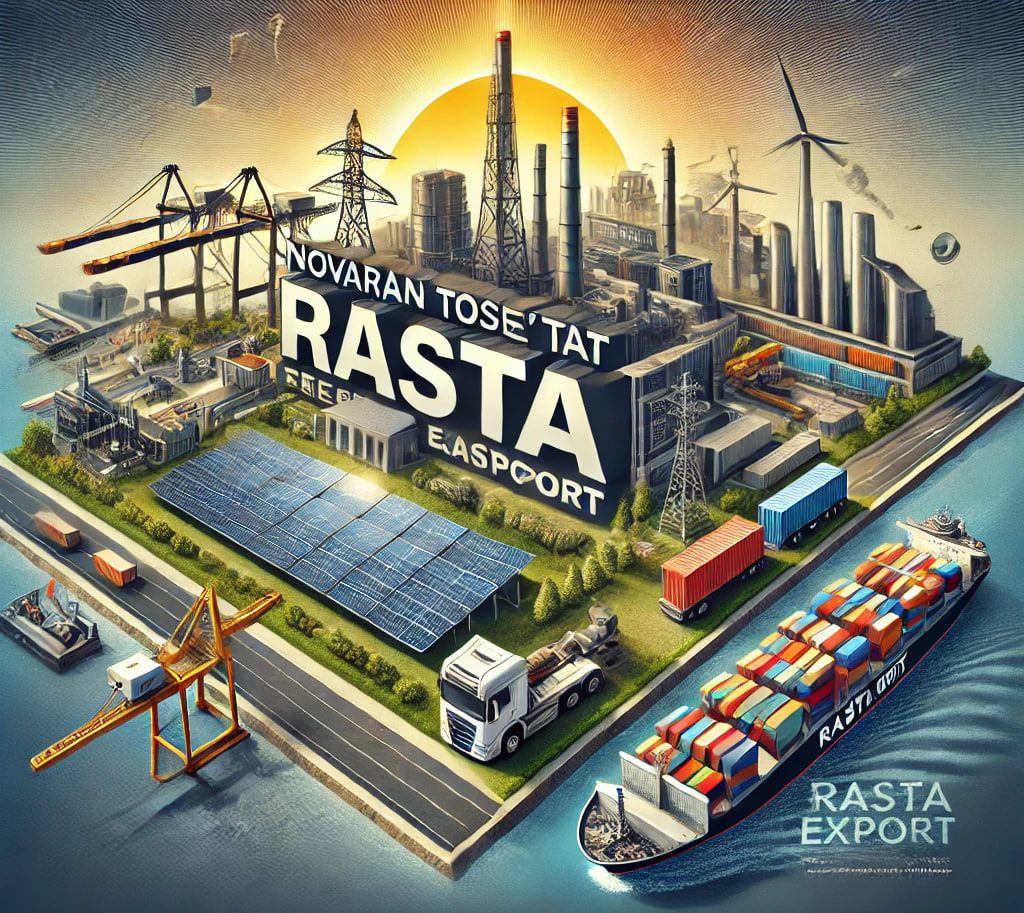
EPC, an abbreviation for Engineering, Procurement, and Construction, is one of the common contractual models used in large-scale industrial and infrastructure projects. This contractual model is particularly prevalent in the oil and gas industries, petrochemicals, renewable energy, and civil infrastructure. In EPC contracts, the contractor is responsible for engineering design, procurement of necessary goods and equipment, construction, and ultimately, commissioning the project. In other words, the EPC Contractor is committed to completing the project comprehensively and with full responsibility.
contracts consist of three main components, each playing a critical role in the successful execution of the project:
offer many advantages, making them one of the most popular contractual models in large projects. These advantages include:
Single Responsibility: One of the greatest benefits of EPC contracts is that a single contractor assumes responsibility for all stages of the project. This single point of responsibility allows the client to interact with only one company as the contract partner, reducing management complexity and coordination with multiple contractors and suppliers. The contractor is responsible for all aspects of the project, from initial design to final commissioning, and must ensure that the project meets specified technical and time requirements.
Risk Reduction: In contracts, many project-related risks are transferred to the contractor. These risks can include delivery delays, cost increases, or technical problems during commissioning. By delegating these responsibilities to the contractor, the client can avoid these risks and be assured that the project will be executed according to the established standards. EPC contractors typically possess high managerial and technical capabilities and can effectively manage project risks.
Fixed Schedule: EPC contracts usually come with defined schedules that the contractor is obligated to follow. These schedules include deadlines for equipment delivery, completion of construction phases, and final commissioning. contractors are required to complete the project within the specified time frame without delay. This helps the client to bring projects into operation on time and avoid additional costs due to delays.
Cost Control: In many contracts, the project cost is determined on a lump-sum basis. This means that the contractor is obligated to complete the project within the initially agreed cost. This type of contract helps the client control costs and prevent unexpected cost increases. contractors, due to their experience and expertise in managing large projects, can accurately predict and manage costs.
High Quality: Another advantage of EPC contracts is that the contractor is also responsible for the quality of the project. contractors must carefully oversee all stages of the project to ensure compliance with quality standards. This oversight includes quality control of equipment, consumables, and construction processes. Thus, the client can be assured of receiving a high-quality project that meets their needs.
Companies operating in the EPC sector must possess a wide range of skills and expertise to execute projects comprehensively and with high quality. These capabilities include:
Engineering: Engineering capability is one of the most fundamental requirements for an company. This includes the necessary skills to design and engineer projects based on the client’s needs and international standards. companies should have specialized engineering teams in various fields such as civil engineering, mechanical engineering, electrical engineering, and process engineering. These teams are responsible for designing drawings, drafting technical specifications, and determining the materials and equipment needed for project execution.
Procurement: One of the major challenges in projects is the procurement of necessary goods and equipment. companies must have access to global networks of reliable suppliers. This capability includes skills in selecting suitable suppliers, negotiating the best prices and terms, and managing the supply chain from the order stage to delivery at the project site. Precise and efficient supply chain management is crucial as delays in the delivery of goods can lead to project execution delays.
Construction: EPC companies must have the necessary capabilities to manage and execute large-scale construction projects. This includes managing human resources, construction equipment, and consumable materials. contractors must be able to execute all construction phases, from erecting structures to installing equipment, safely and while adhering to all quality standards. Additionally, careful oversight of all construction stages is necessary to ensure compliance with engineering drawings and schedules.
Project Management: Project management is one of the key capabilities of an company. This includes the skills necessary for planning, scheduling, and controlling project costs. contractors must have the ability to manage complex projects from start to finish. This management includes drafting schedules, allocating resources, managing risks, and resolving issues and challenges. Additionally, managing communications with the client and other project stakeholders is also of high importance.
Compliance with Standards and Regulations: must be fully aware of all standards and regulations related to projects, especially in environmental, safety, and health areas. The ability to execute projects according to these standards and regulations is one of the important criteria in selecting an EPC contractor. EPC companies must be able to draft and implement safety and health programs in the workplace and ensure that all project activities comply with environmental standards. Moreover, familiarity with national and international regulations related to projects and ensuring compliance with them is essential.
EPC contracts are used in many industries and sectors. Some of the most important applications of this type of contract include:
Oil and Gas Industries: The oil and gas industries are among the primary sectors where contracts are used. Projects related to extraction, refining, and transportation of oil and gas usually require efficient and integrated execution of engineering, procurement, and construction stages due to their technical complexities and large scale. In this industry, EPC contractors are typically responsible for designing and constructing refineries, pipelines, storage tanks, and drilling platforms.
Petrochemical Industries: The petrochemical industries also extensively use contracts. In this industry, contractors are responsible for designing and constructing petrochemical production plants, chemical processing units, and supporting facilities. Due to the safety and quality sensitivities in the petrochemical industries, EPC contractors must have special capabilities in risk management, quality control, and adherence to safety standards.
Renewable Energy: One of the growing areas for the use of contracts is renewable energy, such as solar and wind energy. Projects related to energy production from renewable sources often require advanced technologies and optimal resource management and are frequently carried out under EPC contracts. EPC contractors in this field are responsible for designing and constructing solar and wind power plants, supplying advanced equipment like solar panels and wind turbines, and commissioning control and energy storage systems.
Civil Infrastructure: In the civil infrastructure sector, contracts are typically used for executing large and complex projects such as bridges, tunnels, roads, and transportation systems. In these projects, EPC contractors are responsible for designing and constructing all project components, from technical infrastructure to traffic management systems. Due to the high importance of safety and durability in infrastructure projects, contractors must have strong capabilities in civil engineering and project management.
Novavaran Tose’e Tejarat Rasta Company is a leading EPC contractor in Iran, specializing in the execution of solar power plant projects. The company has successfully completed numerous projects by leveraging specialized teams in engineering, procurement, and construction.
Focusing on solar power plants, Novavaran Tose’e Tejarat Rasta has established itself as a capable EPC contractor, delivering renewable energy projects with the highest quality and within the shortest possible time. By utilizing advanced technologies and collaborating with reputable international suppliers, the company manages all phases of the project, from initial design to final commissioning.
Equipment and Materials Procurement: Novavaran Tose’e Tejarat Rasta has access to an extensive network of international suppliers, enabling them to procure high-quality equipment for their projects. This includes high-efficiency solar panels, inverters, energy storage systems, and other necessary equipment for the commissioning of solar power plants.
Construction and Installation: The company has extensive experience in managing and executing on-site construction and equipment installation operations. By employing skilled labor and modern equipment, Novavaran Tose’e Tejarat Rasta is capable of executing construction and installation projects with high speed and precision.
Commissioning and Operation: After completing the construction and installation phases, the company provides commissioning and operation services for solar power plants. These services include system performance monitoring, quality and efficiency testing, and post-operation support.
With its experience and expertise in the renewable energy sector, Novavaran Tose’e Tejarat Rasta is recognized as a successful company in Iran, having made significant strides in the development of solar power plants. The company, committed to quality and timelines, executes projects to the highest standards, playing a crucial role in expanding the use of clean and renewable energy in the country.
Given global trends and domestic needs, the use of contracts in Iran is expected to increase, particularly in the energy, infrastructure, and petrochemical sectors. As the need for developing energy infrastructure grows, especially in renewable energy, companies can play a key role in this field.
Moreover, with increasing demand for large-scale industrial and infrastructure projects in Iran, companies need to enhance their capabilities. This enhancement includes boosting engineering capacities, expanding procurement networks, and improving project management. Additionally, the adoption of modern technologies and advanced management systems can help improve efficiency and reduce risks in projects.
In this context, companies like Novavaran Tose’e Tejarat Rasta, which focus on renewable energy and particularly solar power plants, can play an important role in developing this industry. Given Iran’s high solar energy potential and the need for optimal use of energy resources, these companies can contribute to sustainable development and reduce reliance on fossil fuels by executing successful projects.
Ultimately, the future of EPC contracts in Iran is highly dependent on technological development, strengthening internal capabilities, and creating suitable investment conditions. With these conditions in place, Iranian companies can not only compete in the domestic market but also successfully execute large and complex projects in international markets.
contracts, as one of the efficient and comprehensive models for executing large-scale industrial and infrastructure projects, offer many advantages, including single-point responsibility, risk reduction, cost control, and quality assurance. Companies active in the EPC field must possess extensive capabilities in engineering, procurement, construction, and project management to successfully execute projects.
Novavaran Tose’e Tejarat Rasta, as a leader in executing projects for solar power plants, has made significant contributions to the development of renewable energy in Iran by utilizing specialized teams and advanced technologies. The company is committed to quality and timelines, executing its projects to the highest standards, and is recognized as a successful example in this industry.
Given the growing needs for infrastructure and energy development in Iran, the future of contracts appears very promising. Companies that can enhance their capabilities and utilize modern technologies to execute high-quality and efficient projects will play a key role in the sustainable development of the country. Among them, companies active in renewable energy, particularly solar power plants, can contribute to reducing dependence on fossil fuels and preserving the environment by executing successful projects.
For inquiries, purchasing, or more information about our products, please reach out to us using the contact details below:
– Phone: +98 21 8877 0680
– WhatsApp: +98 912 6835 639
– Telegram Group: SAVA Business Group
Our team is dedicated to providing excellent support and is ready to assist with any questions or needs you may have.
